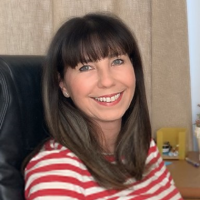
Resia Pretorius, PhD
Professor & Researcher
Expert’s bio
My aim is reduction of the global disease burden by identifying and targeting novel disease markers to mitigate and arrest their effects on inflammation in humans. Since joining the Anatomy Dept at Pretoria University (1999), and as Stellenbosch University (SU) Chair of Physiological Science (2018→) and distinguished professor (2021→) as well as honorary professor Liverpool University (2022→), my research has spanned the areas of haematology and systemic inflammation. I’ve shown how circulating inflammatory molecules in systemic inflammatory diseases lead to pathological blood clotting, hyperactivated platelets and erythrocytes that undergo eryptosis (cell death). Since 2017 I’ve been granted four patents with 14 others pending. While also covering scanning electron microscopy, fluorescence microscopy, flow cytometry and viscoelastic techniques, my focus has evolved from studying clotting pathology to discovering that direct protein-protein interactions between circulating inflammatory molecules and soluble clotting protein, fibrinogen, are main drivers of clotting pathologies. I discovered that this structural and biochemical change in fibrinogen structure results in clotting protein taking on an amyloid nature. This conformational change leads to both hypercoagulation and hypofibrinolysis. This brought my focus to the biochemical and structural nature of fibrinogen, as well as platelets and their role as potent signaling entities during systemic inflammation. Those initial novel discoveries presented evidence on how circulating inflammatory molecules, also from bacteria, may directly impact on pathological clotting, erythrocyte and platelet pathology. I showed that such protein may be measured and its formation tracked using our state-of-the-art microscopy techniques and that bacterial inflammagens drive this misfolding. What started (as shown in my 2017 paper) with novel data concerning the impact of clotting during inflammatory conditions, has led to the identification of trapped inflammatory molecules within plasma protein aggregates that I’ve termed fibrin amyloid ‘microclots’. This resulted in scientists recognising that the extent of the presence of microclots, and their trapped inflammatory molecules, is a key influencer in Long COVID pathology. SU has patented and licensed my method for diagnosing Long COVID; the University start-up company Biocode (of whom I am a founding director), has exclusive rights to the sub-license. The methods have been replicated in other labs. A lab in Germany has been given rights of use and we’re in discussion with a lab in the USA. Two clinical trials in the UK and two in the USA, for treatment of vascular pathology and microclots, will be initiated and will include my research methods for detecting microclots. Besides numerous media features and also features in the UK Times and Guardian, my findings have been discussed in the US Government Accountability Office document and publications Science, Nature, New Scientist, National Geographic and Scientific American. I continued to maintain research activities in relation to microclots in a range of chronic, inflammatory diseases. I am collaborating with researchers and clinicians from all over the globe; some of whom I’ve published papers with. In 2021 I was on the WHO Long COVID panel for expanding understanding of the post COVID-19 condition and, in 2022, on the WHO panel that formulated the Post COVID-19 Condition Case Definition for Children and Young People. In 2023, I presented an update of our work at the WHO., I’m a scientific advisory board member of the Long Covid Foundation, UK, and Phys2biomed, Italy, as well as a panel member of CardioRNA COST Action CA17129, collaborative pan-European network. In Aug of 2023 I was a co-chair at the first a Keystone symposium on Long COVID. In 2023, I also presented invited talks at both the US National Academy of Sciences, and the German National Academy of Sciences. In October of 2023, I was an advisor on MODERNA’s Virtual Long COVID Expert Input Forum. Research awards include African Union Kwame Nkrumah Scientific Award, 2011, NSTF BILLITON Distinguished Researcher Award, 2018, SA Women in Science award runner-up, 2017 and 2019.
